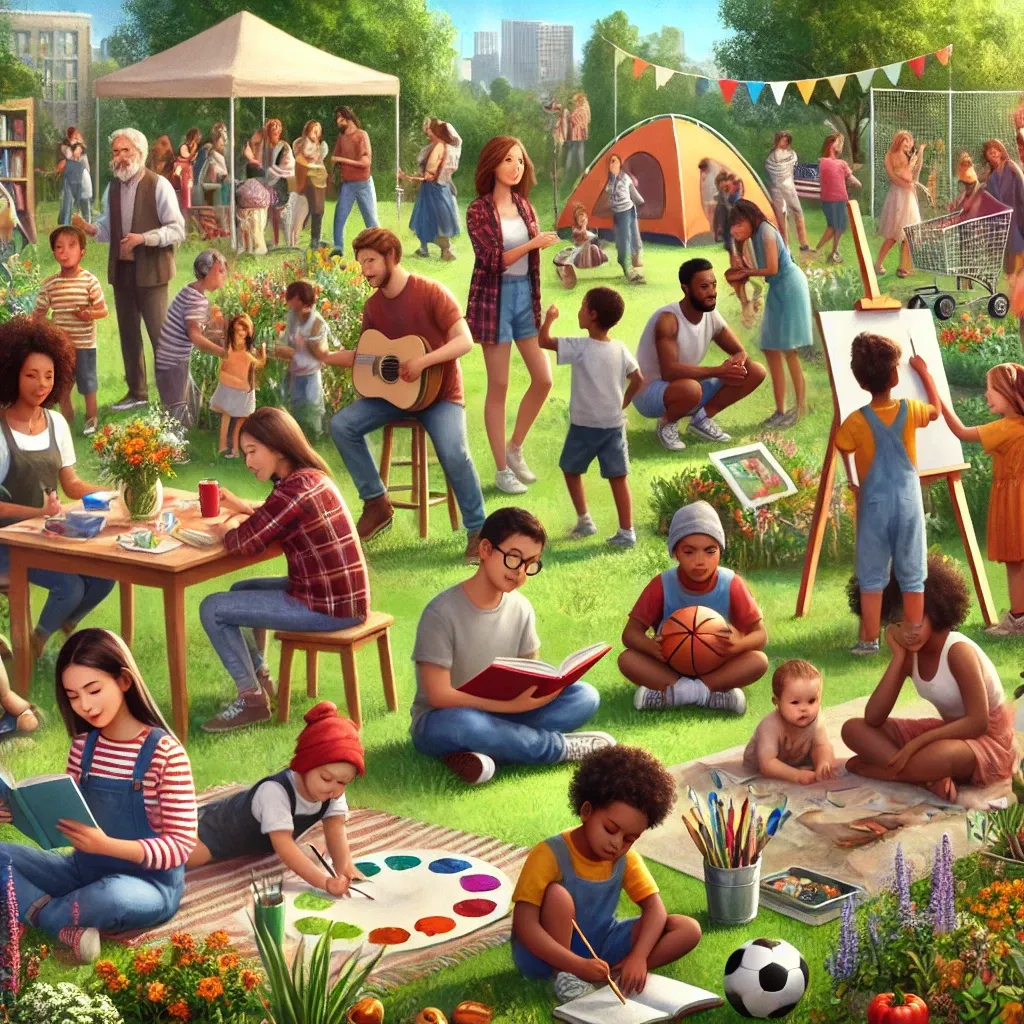Socialization Beyond the Classroom

Many parents considering unschooling for their children often grapple with concerns about socialization. The common misconception is that without the structure of traditional schooling, children might miss out on crucial social interactions. However, unschooling can actually provide a rich tapestry of social experiences that extend far beyond the confines of a single classroom.
Diverse Interactions Beyond Age Constraints
When children are unschooled, they're not confined to interacting with a fixed group of peers for six hours a day. Instead, they have the flexibility to engage with a diverse range of individuals across various age groups and backgrounds. This diversity in social interactions can lead to more well-rounded social skills and a broader perspective on the world.

One of the key advantages of unschooling is the ability to tailor social experiences to a child's interests and needs. For instance, a child passionate about astronomy might join a local stargazing club, where they interact with both peers and adults who share their enthusiasm. This not only fosters their interest but also provides an opportunity to develop social skills in a context they find engaging and meaningful.
Community Involvement and Real-World Learning
Community involvement plays a crucial role in the socialization of unschooled children. By participating in local events, volunteering, or taking part in community projects, children can interact with people of all ages and walks of life. For example, an unschooled teenager might volunteer at a local animal shelter, working alongside adult staff and other volunteers. This experience not only teaches them about animal care but also helps them develop communication skills, teamwork, and a sense of responsibility.
"Unschooling offers a unique approach to socialization that can be broader and more diverse than traditional schooling. By engaging with people of various ages, backgrounds, and interests, unschooled children can develop robust social skills, confidence, and a deep understanding of their community and the world around them."
Classes, workshops, and physical activities offer additional avenues for socialization. An unschooled child interested in art might attend weekly painting classes at a local studio, while another might join a soccer team or martial arts dojo. These experiences bring together people from diverse backgrounds, providing a more realistic reflection of society than a typical school classroom, while teaching important lessons about teamwork, sportsmanship, and respect for others.
Meaningful Interactions with Adults
One of the most valuable aspects of unschooling socialization is the opportunity for children to interact meaningfully with adults in the community. Whether it's conversing with a librarian about book recommendations, discussing current events with neighbors, or learning a craft from a local artisan, these interactions help children develop confidence in communicating with people of all ages. This skill is invaluable in the real world, where we regularly interact with people outside our immediate peer group.

For example, an unschooled child interested in local history might spend time at a museum, engaging in conversations with curators and docents. These interactions not only deepen their historical knowledge but also teach them how to ask thoughtful questions, listen actively, and engage in mature discussions.
Building a Community and Everyday Socialization
Unschooling families often form networks with other like-minded families, creating communities that come together for group activities, field trips, and social events. These gatherings provide regular opportunities for children to form friendships and engage in cooperative play and learning.
It's important to note that socialization through unschooling isn't always structured or planned. Everyday activities like grocery shopping, visiting the bank, or attending community events become opportunities for social interaction and learning. These real-world experiences prepare children for the diverse social situations they'll encounter throughout their lives.
"The key to socialization in unschooling lies in embracing the myriad opportunities for social interaction that exist outside the conventional classroom setting."
Ultimately, unschooling offers a unique approach to socialization that can be broader and more diverse than traditional schooling. By engaging with people of various ages, backgrounds, and interests, unschooled children can develop robust social skills, confidence, and a deep understanding of their community and the world around them. The key lies in embracing the myriad opportunities for social interaction that exist outside the conventional classroom setting.